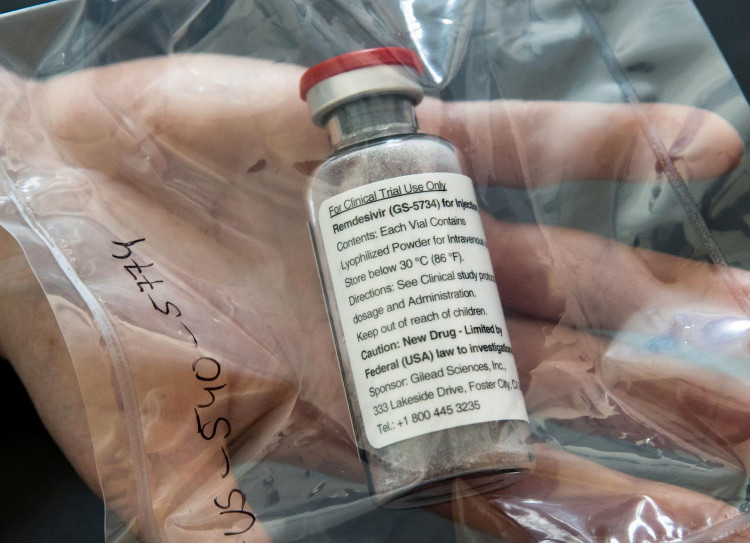A piece of data from Gilead Sciences' third clinical trial of its Remdesivir vaccine shows that the therapy is somewhat effective against patients suffering with COVID-19, but is far from being the badly-needed silver bullet that health experts are all searching for.
The California biotech group disclosed that its experimental vaccine improved symptoms when administered to moderately ill, hospitalized patients with COVID-19 for five days.
The clinical trial compared patients on either a five-day or 10-day treatment of Remdesivir plus standard care against standard care alone. The patients were found to have a "moderate" form of the virus, which indicates they were hospitalized but did not need to rely on a ventilator.
Patients on a five-day course had 65 percent more chance of clinical improvement on the 11th day, compared to standard of care, Gilead disclosed. Gilead Sciences said full details from the clinical trials would be published soon in a medical journal. Shares of the biotech firm were down 4 percent late Monday after it posted results from its Phase 3 trial.
Remdesivir is being tightly monitored after the US Food and Drug Administration granted it emergency use authorization last month, last month, citing clinical trial results from another research conducted by the National Institutes of Health that showed the vaccine minimized hospitalization stays by 30 percent, or around four days, compared to a placebo.
Those results were considered as particularly important as no approved vaccine or drug has been approved by the government to treat COVID-19, though several treatments approved for other illnesses, as well as experimental treatments, are being determined to see if they may change the course of COVID-19, the disease caused by the novel coronavirus.
The framework of the clinical study, however, has also raised eyebrows among some health and pharmaceutical experts. Umer Raffat, an analyst at Evercore ISI said that the main end-point was revised halfway through the testing, from percentage of patients discharged after 14 days to clinical improvement on the 11th day.
The National Institute of Allergy and Infectious Diseases released initial results from its own research in late April, that showing COVID-19 patients who were given Remdesivir usually recovered after 11 days, four days faster compared to patients who were not administered with the vaccine.
According to Raffat, as reported by Jaimy Lee on MarketWatch, while Remdesivir 'worked' on a 7-point scale, "a fair amount of key data has not been announced just yet." Data taken from hospital discharges were not immediately available on Monday.





